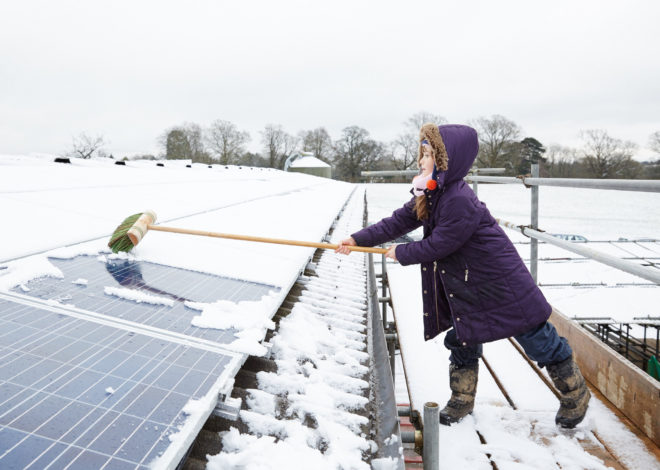Canada obliged to protect future generations from climate change, test case on carbon tax hears
Young people ‘will live their entire lives under the mounting environmental, economic, and health stresses’ caused by growing greenhouse gas emissions, coalition argues
By Larry Pynn, for The Narwhal
When the governments of Canada and Saskatchewan publicly squared off in court in Regina this month over the constitutionality of a federally imposed carbon tax, a lesser organization was quietly advancing its own case, on behalf of young Canadians and future generations.
The Intergenerational Climate Coalition, an intervenor in the case, argued that the Canadian government has a constitutional obligation to protect minorities, including future generations of children who stand to be negatively impacted by climate change.
“No jurisdiction, federal or provincial, should be able to use the constitutional division of powers to defeat other constitutional commitments to younger Canadians and future generations,” says Paul Kershaw, founder of Generation Squeeze, the lead of six organizations that form the coalition.
The Canadian government’s Greenhouse Gas Pollution Pricing Act of 2018 imposes a federal price on greenhouse gas emissions for any province or territory that does not adopt the federal program or implement its own carbon tax. The initial tax is $10 per tonne annually of carbon-dioxide equivalent, rising to $50 per tonne in 2022.
The preamble of the act states: “Parliament recognizes it is the responsibility of the present generation to minimize impacts of climate change on future generations.”
But does the federal tax intrude unlawfully into provincial jurisdiction? Saskatchewan went to the province’s Court of Appeal on Feb. 13 and 14 in a reference case to determine if the act is unconstitutional in whole or in part. A decision in the case is pending.
Ontario has launched its own legal challenge of the federal tax, a case scheduled to be heard April 15 to 18 in the Court of Appeal in Toronto. The Canadian government argues that the carbon tax falls within the “peace, order and good government” clause in the Constitution Act of 1867.
Young people to bear harshest climate impacts
Documents submitted into court by the Intergenerational Climate Coalition warn that global warming is poised to increase temperatures by 1.5 degrees Celsius by 2030, causing “extreme weather events, rising sea levels and droughts, as well as higher rates of heat-related deaths and cardiovascular, respiratory and infectious diseases.”
Due to political decisions made before they could vote, the documents read, children “will live their entire lives under the mounting environmental, economic, and health stresses” caused by greenhouse gas emissions.
Kershaw, an associate professor in the University of British Columbia’s School of Population and Public Health, says Generation Squeeze is meant to provide a voice for younger Canadians in their 20s to 40s in politics and the marketplace — everything from stagnant incomes to rising debts and unaffordable housing.
Supporting the federal carbon-tax initiative won’t help today’s young people get into their first homes or find better-paying jobs, but it will help provide them with the healthier future that they deserve, Kershaw argues.
“Experts now identify climate change as the greatest risk to human health in the 21st century,” he says. “The health harms are disproportionately being borne by younger Canadians and future generations. Clearly, we should be thinking about pricing pollution as a health intervention.”
“Experts now identify climate change as the greatest risk to human health in the 21st century.” — Paul Kershaw, Generation Squeeze
U.S. economist William Nordhaus, a supporter of carbon taxes to slow carbon emissions, shared in the Nobel Prize in 2018 just as the United Nations Intergovernmental Panel on Climate Change warned that urgent changes are needed to fight global warming and reduce threats such as heat and drought.
“Every government should have the ability to use every tool in its legislative tool box to fight off what climate change has in store,” Kershaw says.
Formed in 2011, Generation Squeeze has supported a range of government initiatives across the country, including: the push for $10-a-day childcare in B.C.; the City of Vancouver’s tax on empty homes, set at one per cent of a property’s assessed taxable value; and working with municipalities on densification issues.
Kershaw sees the need to counter publicity garnered this month by a convoy of trucks known as United We Roll driving from Alberta to Ottawa to protest federal oil policies.
Student climate strikes sweeping globe
Students strikes might just be the answer.
Thousands of students walked out of classrooms across the United Kingdom this month in a national climate-change protest called Youth Strike 4 Climate. The movement, inspired by Swedish teenager Greta Thunberg, is leading to a global school walkout planned for March 15.
“That’s a moment where we really do need to get students excited,” Kershaw says. “Can we repeat that in Canada?”
Canada’s big student strike is set for May 3, although there are also events planned for March 15.
Other members of the Intergenerational Climate Coalition are Public Health Association of B.C., Saskatchewan Public Health Association, Canadian Association of Physicians for the Environment, Youth Climate Lab and Canadian Coalition for the Rights of Children.


























Comments